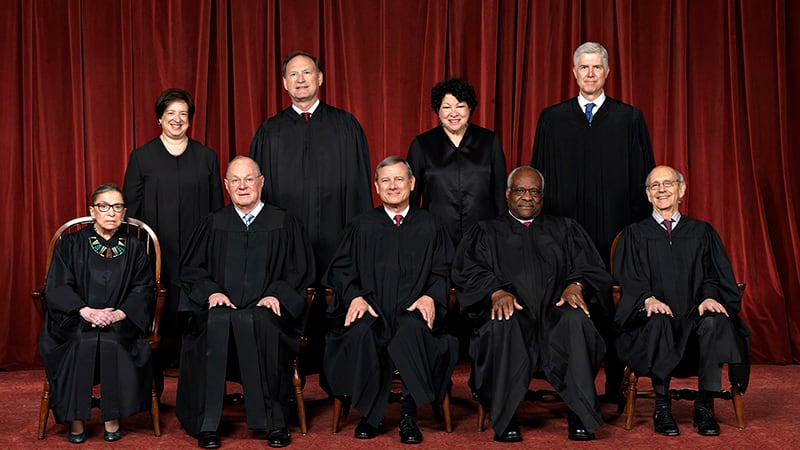The United States Supreme Court today will hear Janus v. the American Federation of State, County and Municipal Employees, a case from Illinois that has implications for every state—but perhaps none more than Oregon.
Mark Janus, a state of Illinois child support specialist, brought the case because he objects to paying $45 a month in dues to AFSCME.
The Supreme Court decided in 1977 that it's legal for unions to charge dues to members of their bargaining units who do not wish to be union members. The rationale for charging such employees is that they benefit from the union's bargaining power and therefore should contribute to union costs.
That decision, known as Abood v. Detroit Board of Education, has long infuriated critics of public employee unions, who would like to reduce unions' clout.
The New York Times reported today on the conservative funders behind the movement to gut public employee unions through the courts.
In January 2016, a case similar to Janus vs AFSCME went before the Supreme Court. But before the court could reach a decision, Justice Antonin Scalia, the court's loudest conservative voice, died unexpectedly. Scalia's death left the court deadlocked four-to-four and delayed what observers expected to be a defeat for unions.
Now, with Justice Neil Gorsuch, a Trump appointee, occupying Scalia's chair on the bench, public employee unions are again girding for a blow to their fundraising ability.
Five large Oregon labor groups, who collectively represent 450,000 workers, weighed in on the case today.
"This case is the latest in a long line of attacks on organized labor, but union workers in Oregon remain more committed than ever to building an economy where working people have a pathway to prosperity," said representatives of AFSCME, Service Employees International Union, the Oregon Education Association, the AFL-CIO and the American Federation of Teachers.
Oregon is the only state in the union that has no limits on political contributions and in which Democrats—traditionally the party of organized labor—control both legislative chambers and the governor's office.
That means if the court rules against labor, the consequences here could be higher than any other state.
"Our union is stronger than ever," said Stacy Chamberlain, the executive director of Oregon AFSCME, in a statement. "Members see this case for what it is—an attempt to silence their voices and it won't work. We are growing, activism within our membership is on the rise, and we are seeing more members take the next step to becoming leaders at their workplaces."
